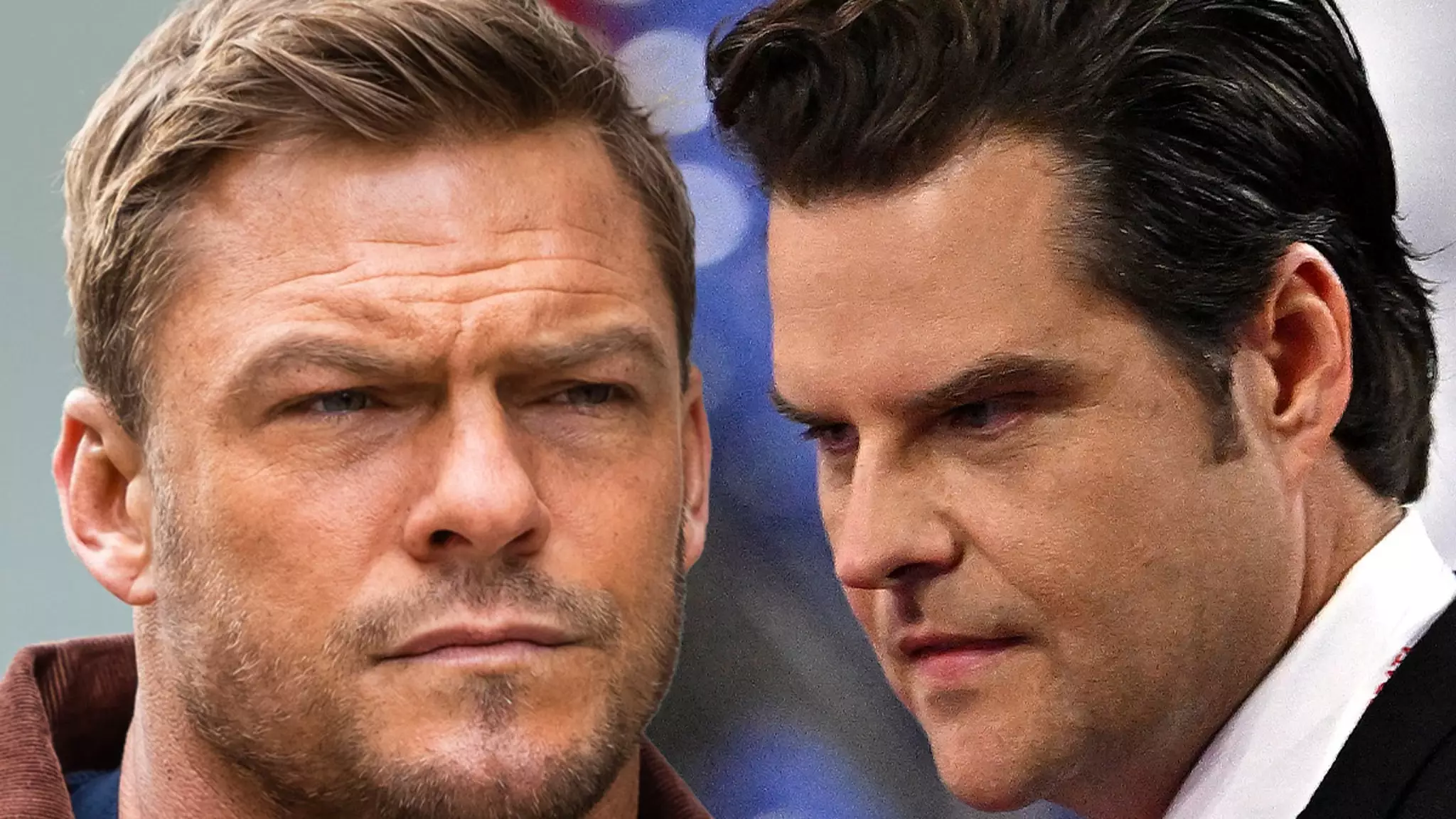In a recent interview with GQ magazine, actor Alan Ritchson, renowned for his role in “Reacher,” aired his grievances against former congressman Matt Gaetz, whom he has known since their childhood in Niceville, Florida. The revelation that Ritchson harbors such strong feelings against Gaetz raises questions about the interplay between personal relationships and political beliefs. Their shared upbringing in the same community starkly contrasts with Ritchson’s current view of Gaetz as an adversary. He does not mince words when expressing his contempt for Gaetz, remarking, “That mother******. We are adversaries.” This choice of language highlights the depth of his disapproval and suggests a personal betrayal felt by Ritchson.
Ritchson’s public criticism touches on larger themes of political loyalty and civic duty. His disbelief that the Florida panhandle continues to support Gaetz, despite the dark allegations that have followed the latter throughout his political career, reveals a significant frustration with electoral choices. Ritchson emphasizes a perceived moral obligation among voters to hold their representatives accountable, a sentiment that resonates with many who feel disillusioned by political figures who breach ethical norms. His mention of Gaetz’s controversial promises surrounding criminal pardons prompts further examination of the integrity necessary for public office. The stark contrast in their values reveals an individual grappling with the complexities of American politics.
Interestingly, Ritchson expressed fleeting thoughts about entering the political arena himself, potentially to combat figures like Gaetz. However, he humorously undercuts this notion by claiming he lacks the “duplicitous” qualities often seen in politicians. This self-awareness prompts reflection on why individuals like him might shy away from public office; the political landscape often rewards those who can bend truths or manipulate narratives. Ritchson’s reluctance suggests a yearning for authenticity in public service that he feels is lacking in the current political climate.
Personal Stories Intertwined with Broader Discussions
Throughout the interview, Ritchson navigates a range of personal experiences, from addressing drug use and a past suicide attempt to discussing the joys and challenges of fatherhood. The candid nature of his revelations lends depth to his critiques of politicians like Gaetz, as they underline the importance of genuine human experiences over political posturing. The intertwining of personal struggles with public critique suggests that Ritchson advocates for a more compassionate approach to politics, one rooted in shared human experiences rather than divisive rhetoric.
As Ritchson’s outspoken disapproval of Gaetz gains traction, one can’t help but wonder how this feud might evolve. Much like his character Jack Reacher, Ritchson seems prepared to confront challenges head-on, bringing a sense of drama and intensity to his public persona. Whether or not Gaetz will respond to these criticisms remains to be seen, but the underlying tension paints a vivid picture of how personal history can deeply influence current political discourse. The public domain increasingly witnesses celebrities stepping into political conversations, often challenging established figures and norms, and Ritchson’s stance is a prime example of this phenomenon.

